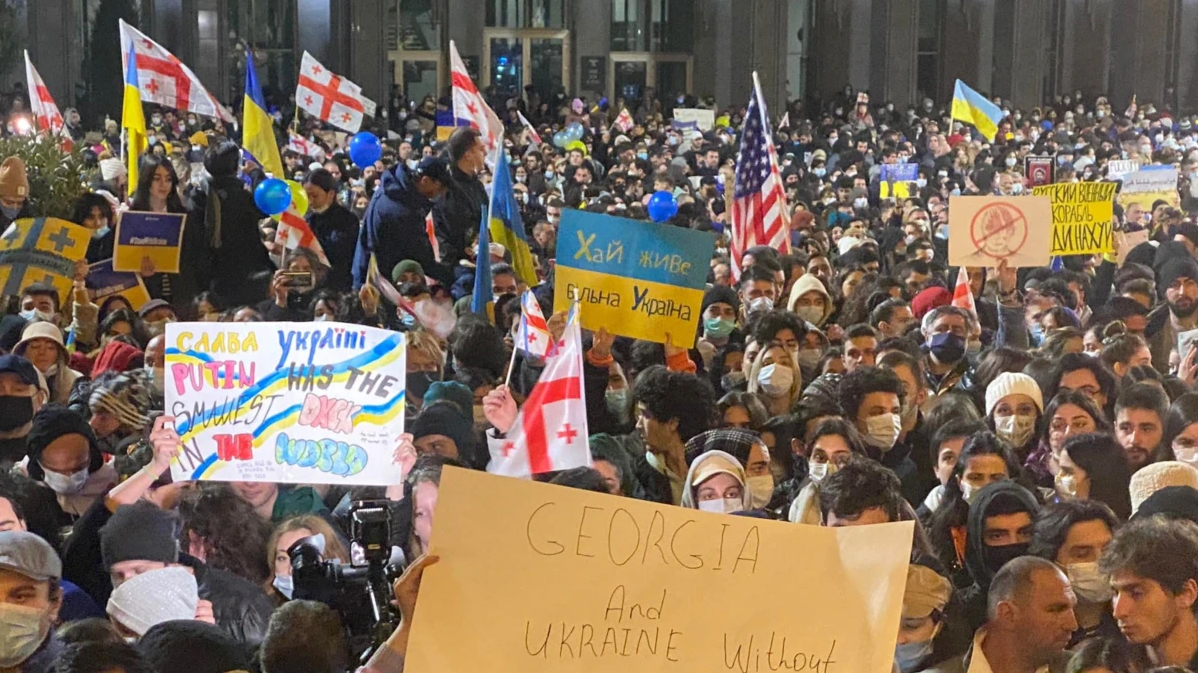Since the end of June, the Georgian opposition has been holding mass rallies in support of European integration and against the current government. The reason was the EU’s refusal to grant Georgia the status of an EU candidate country until a number of conditions are met. Demonstration on June 20 was the largest opposition rally since 2012, gathering between 30,000 and 50,000 people.
Protest was organized by representatives of public organizations and NGOs. One of the opposition leaders Shota Digmelashvili (Shame Movement) positions the rallies as civil and not associated with political parties, in order to attract the general public. However, the United National Movement and its satellite parties (European Georgia, Strategy of Agmashenebeli, Droa) participated in the rallies, provided institutional and financial support, in particular, they provided buses to participants from the regions.
The protesters are demanding temporary technocratic “government of national consensus” that will replace the current leadership led by PM Irakli Garibashvili and implement the recommendations of the European Union. In case of refusal, the radical part of the opposition threatens to organize large-scale protests and civil disobedience throughout the country.
The Georgian authorities reject the demands of the protesters as anticonstitutional. Chairman of ruling party “Georgian Dream” Irakli Kobakhidze announced the working groups to fulfill 12 requirements of European Union. Groups should include representatives of all parliamentary parties, NGOs and international partners of Georgia.
According to International Expert Platform, organized by SIKHA Foundation, in the near future the Georgian opposition will continue to hold rallies, but during the summer holidays, highly likely, they will not gather a critical mass of people at their rallies. Most of Georgian society don’t have revolutionary sentiments. Opposition is unlikely to get help from the West, which is not interested in destabilisation of the situation in Georgia. An increase in protest activity is possible if Brussels declares that Georgia has not met the conditions for obtaining the status of an EU candidate.
